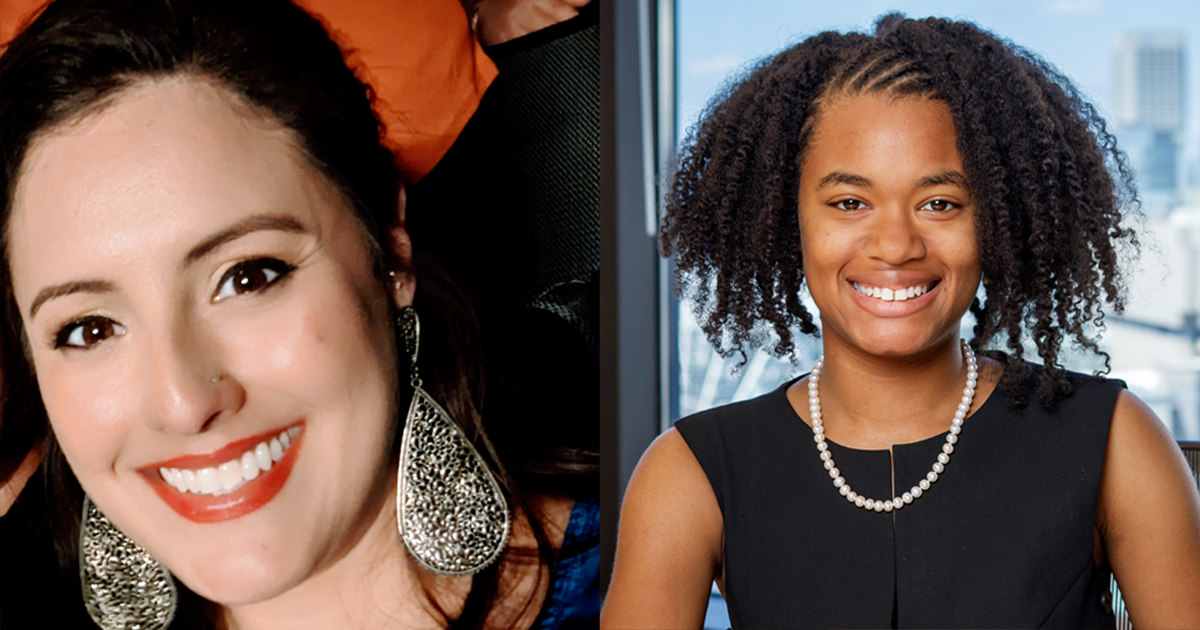"Pass the Torch" Teacher Scholarships

Through our annual Teachers Test Prep "Pass the Torch" Teacher Scholarships program, we award a total of $10,000 to aspiring K-12 educators: one $5,000 scholarship to a recipient planning a career in elementary education and one $5,000 scholarship to a recipient planning a career in secondary education.
Funds are awarded directly to the recipients to help pay for living expenses that financial aid typically doesn't cover so they can focus more time on preparing to become a credentialed teacher.
All finalists receive a $100 Amazon gift card and one year of free access to any of our Core Plus Online Prep Programs to help them pass the credentialing exams required by their state. We offer these programs for the CBEST, CPACE, CSET, edTPA, FTCE, ParaPro, Praxis, RICA and TExES. (If you've already purchased one of these programs from us, your costs will be refunded.)
To qualify, applicants must be enrolled in a teacher preparation program in the US for the upcoming academic year and be able to demonstrate financial need. Note that we will request evidence of financial need, such as the receipt of Federal Student Aid, when notifying finalists.
Tell Us the Story of a Teacher Who Inspired You
Most of us who feel drawn to teaching had at least one teacher who made a huge difference in our lives. We know firsthand the power we each have to affect another person.
Teachers Test Prep wants to hear the story of a teacher who had an impact on you, and what you learned from that person that you'd like to pass on to the students you will teach.
How to Apply
Applications for our scholarships are currently closed, and the program is on hiatus for 2025. Applications for our 2026 scholarships will open in January. Please check back on this page at that time.
- Download the Scholarship Application Form (available January 2026).
- Record a video no longer than six minutes in which you tell us your story. (Note: landscape format preferred.)
- Upload it to a video site such as YouTube, Vimeo, etc.
- Email your signed Scholarship Application Form and a link to your video (not the full video file) to scholarships@teacherstestprep.com
Note: You can use this handy checklist to ensure you satisfy all parts of the application. In particular, before you send your video link, make sure that it works and can be accessed by an outside party. (You may want to email it to a friend to confirm this.) Entries with links that don’t work or can’t be accessed will be automatically disqualified.
Looking for Inspiration?
You can view the scholarship recipients and finalists from previous years at the links below.
- 2024 Scholarship Finalists
- 2023 Scholarship Finalists
- 2022 Scholarship Finalists
- 2021 Scholarship Finalists
- 2020 Scholarship Finalists
- 2019 Scholarship Finalists
-
2018 Scholarship Finalists
Frequently Asked Questions
If I am awarded a scholarship, are there any restrictions as to how I can use the funds?
There are no restrictions. Recipients have complete discretion in how to use funds. However, our intention is that the funds be used to help pay for housing, transportation, books, and other living expenses to enable you to focus more time on your teacher preparation program.
When are scholarship applications accepted?
Applications generally open at the start of January and close around the end of July. More specific dates can be found in the Program Timeline on this page.
How do I know if my application was received?
You should receive an automated email response confirming receipt of your application. If you do not receive it, check your spam folder. If you still have not received it and you are sure your application email was sent to the correct email address, please contact us for assistance.
Who chooses the finalists and recipients?
Select Teachers Test Prep staff members will review all applications and choose approximately five to ten finalists. All Teachers Test Prep staff will then watch the finalists' videos and meet for a discussion where the scholarship winners will be decided.
What is the selection criteria?
Each application is considered holistically, but the largest determining factor is the strength of the applicant's story. If we are inspired by you and your story, your future students probably will be, too.
For insights and advice from past judges, you may like to visit our scholarship tips page.
What are some ways of demonstrating financial need?
All finalists will be asked to provide evidence of financial need. A common way of doing this is showing a current Federal Student Aid document. Other methods could include a Medicaid or Electronic Benefits Transfer (EBT) card, an official letter from the Finance Office at your college or institution, or evidence of a personal loan for education purposes.
What if my video is over 6 minutes?
Applications with videos over 6 minutes long will be automatically disqualified. Note that certain hosting sites may add a few additional seconds to the video length, so recheck the length after the video has been uploaded.
Are you looking for a certain style of storytelling?
No, how you tell your story is completely up to you. You might speak directly to the camera, create an animation, record footage from your life, or something else. Your story could be serious, funny, heartfelt or dramatic. Each of us has our own personality and way of communicating. Be yourself and tap into what genuinely inspires you.
That said, the following questions may help with story structure:
- What were you like before you encountered the teacher who inspired you? What was a key difficulty you had, or something you were struggling with? How did you feel?
- Who was your teacher? What was the setting in which you encountered him/her? What was unique or impactful to you about him/her?
- What changed in you, or for you, as a result of this teacher? Can you express the heart of what you learned in a single sentence?
- How did you feel after learning from this teacher? Was there a "domino effect"? In other words, how did the effect of what you learned, or how you changed, spread throughout your life?
- What kind of teacher do you want to be for your students? What effect do you want to have on them? How can what you learned from the teacher who inspired you help you do that?
Am I being judged on the technical quality of my video?
No. Just make sure we can see and hear you clearly. Feel free to get creative if you want, but a basic video recorded on your laptop or smartphone is fine: what we're really interested in is you and your story.
What things should I consider when recording my video?
- Check that the sound is clear and audible. If you recorded your video on your phone, take the time to listen to it on a computer as well. If possible, test your video on multiple devices as sound settings can differ.
- Noises in the background such as people talking or cars going by can be extremely distracting to viewers. Try to film in a quiet location with good acoustics.
- If you’re using a handheld camera, be sure it’s steady: if the viewer is conscious of the camera moving, they won’t be focused on what you’re saying.
- If you’re filming yourself speaking, think about where you’re going to record. Rather than simply shooting in your bedroom or your car, you may want to choose a location which relates in some way to your story.
- Everything which we see on camera communicates a message. Consider all objects in the background and around you and try to make sure they are relevant to your story.
- Make sure that the light is bright enough for you to be seen clearly and that it creates the atmosphere you intend.
- Consider where you want to position the camera in relation to yourself. A close-up shot focuses more attention on your face, a medium shot (from the waist up) allows us to see you in a particular environment, while a long shot focuses more attention on your surroundings.
- Straight or eye-level shots have the most neutral effect, so can be a good choice if you want the viewer to focus on what you’re saying. Unusual camera angles can be used for creative effect but can also distract the viewer, so use these thoughtfully.
- If you’re using music, images or any other content created by other people, make sure that you’re adhering to copyright and intellectual property laws.
- If anybody else features in your video, including in photos, make sure that you’ve obtained their permission. If anyone under 18 is shown, you’ll need to have written permission from their parent or legal guardian.
Can I tell a story about someone I felt was a bad teacher?
No. While we realize that people can learn from both positive and negative experiences, as an organization that supports aspiring educators, our goal with this scholarship is to highlight the ways teachers enrich their students’ lives. There are so many wonderful teachers who influence us in different ways: if you can’t think of a teacher who inspired you in a traditional classroom setting, you may like to consider other types of teachers you’ve encountered, whether they be family members, friends, philosophers, authors or someone else.

